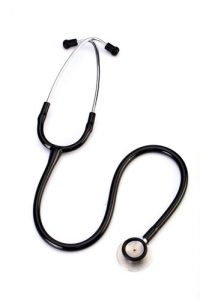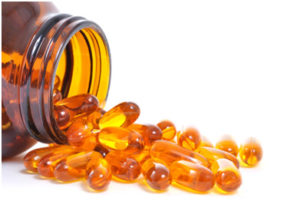Do Omega-3s Reduce Depression?
Author: Dr. Stephen Chaney
 We are in the midst of a mental health crisis. According to the latest statistics:
We are in the midst of a mental health crisis. According to the latest statistics:
· 19% of adults in the United States have some form of mental illness.
· 16.5% of youth ages 6-17 have some form of mental illness.
· The 5 most commonly diagnosed forms of mental illness are anxiety, depression, post-traumatic stress disorder, bipolar disease, and ADHD.
Even worse, mental illness appears to be increasing at an alarming rate among young people. For example:
· Between 2005 and 2017 depression increased 52% among adolescents.
· Between 2002 and 2017 depression increased 63% in young adults.
· Between 1999 and 2014 suicides have increased 24% in young adults. In the past few years suicides have been increasing by 2% a year in this group.
Much has been written about the cause of this alarming increase in mental illness. The short answer is that we don’t really know. But the most pressing question is what do we do about it?
The medical profession relies on powerful drugs to treat the symptoms of mental illness. These drugs don’t cure  the illness. They simply keep the symptoms under control. Plus, if you have ever listened closely to the advertisements for these drugs on TV, you realize that they all have serious side effects that adversely affect your quality of life.
the illness. They simply keep the symptoms under control. Plus, if you have ever listened closely to the advertisements for these drugs on TV, you realize that they all have serious side effects that adversely affect your quality of life.
My “favorite” example is drugs for anxiety and depression. You are told that one of the side effects is “suicidal thoughts”. That means that the very drug someone could be prescribed to prevent suicides might actually increase their risk of suicide. Why would anyone take such a drug?
If drugs are so dangerous, what about supplements? Do they provide a safe, natural alternative for reducing the symptoms of mental illness? Some supplement companies claim their products cure mental illness. Are their claims true or are they just trying to empty your wallet?
How is a consumer to know which of these supplement claims are true and which are bogus? Fortunately, an international team of scientists has scoured the literature to find out which supplements have been proven to reduce mental health symptoms.
How Was The Study Done?
 This was a massive study (J. Firth et al, World Psychiatry, 18: 308-324, 2019. It was a meta-review of 33 meta-analyses of randomized, placebo-controlled trials with a total of 10,951 subjects. The clinical trials included in this analysis analyzed the effect of 12 nutrients, either alone or in combination with standard drug treatment, on symptoms associated with 10 common mental disorders.
This was a massive study (J. Firth et al, World Psychiatry, 18: 308-324, 2019. It was a meta-review of 33 meta-analyses of randomized, placebo-controlled trials with a total of 10,951 subjects. The clinical trials included in this analysis analyzed the effect of 12 nutrients, either alone or in combination with standard drug treatment, on symptoms associated with 10 common mental disorders.
To help you understand the power of this meta-review, let me start by defining the term “meta-analysis”. A meta-analysis combines the data from multiple clinical studies to increase the statistical power of the data. Meta-analyses are considered to be the gold standard of evidence-based evidence.
However, not all meta-analyses are equally strong. They suffer from the “Garbage-In, Garbage-Out” phenomenon. Simply put, they are only as strong as the weakest clinical studies included in their analysis.
That is the strength of this meta-review. It did not simply combine the data from all 33 meta-analyses. It used stringent criteria to evaluate the quality of each meta-analysis and weighted the data appropriately.
What Supplements Help Mental Health?
 The strongest evidence was for omega-3 supplements. In the worlds of the authors:
The strongest evidence was for omega-3 supplements. In the worlds of the authors:
· “Across 13 independent randomized control clinical trials in 1,233 people with major depression, omega-3 supplements reduced depressive symptoms significantly.”
o The average dose of omega-3s in these studies was 1,422 mg/day of EPA.
o The effect was strongest for omega-3 supplements containing more EPA than DHA and for studies lasting longer than 12 weeks.
o There was no evidence of publication bias in these studies. This is a very important consideration. Publication bias means that only studies with a positive effect were published while studies showing no effect were withheld from publication. That makes the effect look much more positive than it really is. The fact there was no evidence of publication bias strengthens this conclusion.
o Omega-3 supplements were more effective when used in combination with antidepressant drugs, but there was some evidence of publication bias in those studies.
· “Across 16 randomized control clinical trials reporting on ADHD symptom domains, significant benefits were observed for both hyperactivity/impulsivity and inattention.”
· Omega-3s had no significant effect on schizophrenia or bipolar disorder other than a mild reduction in depressive symptoms.
There was strong, but not definitive, evidence for folic acid and methylfolate supplements for depression.
· When used in conjunction with antidepressants both folic acid and methylfolate supplements “…were associated with significantly greater reductions in depressive symptoms compared to placebo, although there was large heterogeneity between trials.”
· The largest effects were observed with high dose methylfolate. In the words of the authors: “Two randomized control clinical trials examining a high dose (15 mg/day) of methylfolate administered in combination with antidepressants found moderate-to-large benefits for depressive symptoms.” However, to put this into perspective:
o 15 mg/day is 3,750% of the RDA. This is a pharmacological dose and should only be administered under the care of a physician.
o A smaller dose of 7.5 mg/day is ineffective.
o No comparison was made with folic acid at this dose, so we do not know whether folic acid would be equally effective.
· The authors concluded that there is emerging evidence for positive effects of vitamin D (>1,500  IU/day) for major depressive disorders and N-acetylcysteine (2-3 gm/day) in combination with drugs for mood disorders and schizophrenia. The term “emerging evidence” means there have been several recent studies reporting positive results, but more research is needed.
IU/day) for major depressive disorders and N-acetylcysteine (2-3 gm/day) in combination with drugs for mood disorders and schizophrenia. The term “emerging evidence” means there have been several recent studies reporting positive results, but more research is needed.
· The authors did not find evidence supporting the use of other vitamin and mineral supplements (E, C, zinc, magnesium, and inositol) for treating mental health disorders.
· The authors did not find enough high-quality studies to support claims about the effects of prebiotics or probiotics on mental health disorders.
Do Omega-3s Reduce Depression?
 The evidence supporting the effectiveness of omega-3s in reducing symptoms of depression is strong. In the words of the authors: “The nutritional intervention with the strongest evidentiary support is omega-3, in particular EPA. Multiple meta-analyses have demonstrated that it has significant effects in people with depression, including high-quality meta-analyses with good confidence in findings…”
The evidence supporting the effectiveness of omega-3s in reducing symptoms of depression is strong. In the words of the authors: “The nutritional intervention with the strongest evidentiary support is omega-3, in particular EPA. Multiple meta-analyses have demonstrated that it has significant effects in people with depression, including high-quality meta-analyses with good confidence in findings…”
However, before you throw away your antidepressants and replace them with an omega-3 supplement, let me put this study into perspective for you.
· Depression can be a serious disease. If you just feel a little blue from time to time, try increasing your omega-3 intake. However, if you have major depression, don’t make changes to your treatment plan without consulting your physician.
· The best results were obtained when omega-3s were used in combination with antidepressants. This should be your starting point.
· Ideally, adding omega-3s to your treatment plan will allow your doctor to reduce or eliminate the drugs you are taking. That would have the benefit of reducing side effects associated with the drugs. However, I would like to re-emphasize this is a decision to take in consultation with your doctor. [My only caveat is if your doctor is unwilling to even consider natural approaches like omega-3 supplementation, it might be time to find a new doctor.]
· Finally, omega-3 supplementation is only one aspect of a holistic approach to good mental health. A healthy diet, exercise, supplementation, and stress reduction techniques all work together to keep your mind in tip-top shape.
The Bottom Line
There are lots of supplements on the market promising to cure depression and other serious mental health issues. Are they effective or are the claims bogus? Fortunately, a recent meta-review of 33 meta-analyses of high-quality clinical trials has answered that question. Here is their conclusion:
· The evidence is strongest for omega-3s and depression.
o The average dose of omega-3s in these studies was 1,422 mg/day of EPA.
o The effect was strongest for omega-3 supplements containing more EPA than DHA and for studies lasting longer than 12 weeks.
· There is fairly strong evidence for folate/folic acid supplements and depression, although there was large heterogeneity between trials.
· There is emerging evidence for vitamin D (>1,500 IU/day) and depression and N-acetylcysteine (2-3 gm/day) for depression and schizophrenia.
· Evidence for other supplements is currently inconclusive.
However, before you throw away your antidepressants and replace them with an omega-3 supplement, let me put this study into perspective for you.
· Depression can be a serious disease. If you just feel a little blue from time to time, try increasing your omega-3 intake. However, if you have major depression, don’t make changes to your treatment plan without consulting your physician.
· The best results were obtained when omega-3s were used in combination with antidepressants. That should be your starting point.
· Ideally, adding omega-3s to your treatment plan will allow your doctor to reduce or eliminate the drugs you are taking. That would have the benefit of reducing side effects associated with the drugs.
· Finally, omega-3 supplementation is only one aspect of a holistic approach to good mental health. A healthy diet, exercise, supplementation, and stress reduction techniques all work together to keep your mind in tip-top shape.
For more details, read the article above.
These statements have not been evaluated by the Food and Drug Administration. This information is not intended to diagnose, treat, cure or prevent any disease.

